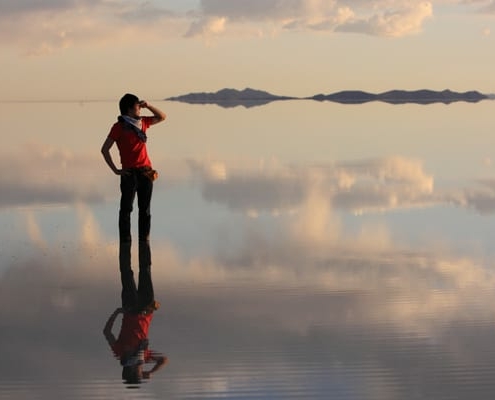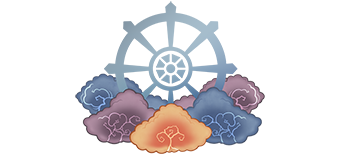
Blog: Personal Responsibility: An Interview with Isa Gucciardi, Ph.D.
Applied Buddhist Psychology, Blog, Empowered Living, Inner Wisdom, Isa Gucciardi, Personal Responsibility, RelationshipsQuestion: How would you define personal responsibility?
Isa: Personal responsibility is a process of becoming more self-aware, understanding your motivations, your intentions, and the effect your actions and thoughts have on you and those around you. It involves a willingness to contemplate the consequences of your emotional responses, and the ability to recognize when those expressions are harmful and when they are beneficial.

Blog: The Two Truths: Finding Meaning in Difficult Situations
Applied Buddhist Psychology, Blog, Buddhism, Cases, Depth Hypnosis, RelationshipsBy Isa Gucciardi, Ph.D.
In a recent dinner conversation with friends, the Buddhist concept of the Two Truths came up. In Buddhist philosophy, the Two Truths offers an explanation of the nature of reality. The discussion wound around to how I introduced adapted elements of the Two Truths to students in the Depth Hypnosis Foundation Course. This adaptation is a bit like an overview, making the concept a little easier to grasp and apply in a Western context.
Article: Relationship as a Vehicle for Consciousness
Applied Buddhist Psychology, Article, Depth Hypnosis, Empowered Living, Energetic Patterns, Karma, RelationshipsBy Isa Gucciardi, Ph.D.
Relationship forms the core of our experience as humans. We define ourselves and are defined by the nature of our relating. The Buddhist concept of interdependence affirms that nothing exists independently. Everything exists interdependently. In relationship, we do not and cannot exist independently of one another. It is through relationship that we come to know ourselves. It is through relating that we hold up a mirror to others for them to come to know themselves. Others do the same for us, providing us with information about ourselves that we could not see without the lens of relating. In this way, relationship provides us with a path of revelation. As we learn more about ourselves, our experience takes on richer meaning.
Blog: Finding Power in Powerlessness
Applied Buddhist Psychology, Blog, Depth Hypnosis, Empowered Living, Personal Responsibility, RelationshipsBy Isa Gucciardi, Ph.D.
The roots of anger, and indeed, the roots of many potentially destructive emotions, lie in powerlessness. Most people would not choose destructive emotions as a way to gain control over circumstances if they could learn to tolerate not having control over the situations around them. It is important to be gentle with yourself and have self-compassion as you learn to be present with your anger. It is easier to be compassionate with yourself if you can trust your ability to take responsibility for any way you may have harmed yourself or another with anger. In this way, you won't look for the easy "out," but instead learn everything you have to learn from the way you have related to your anger. In this way, you can understand the roots of your anger more fully, make amends where needed, and honor the information contained in your anger.
Blog: Listening to Anger
Applied Buddhist Psychology, Blog, Depth Hypnosis, Energetic Patterns, Personal Responsibility, RelationshipsBy Isa Gucciardi, Ph.D.
There is a Mahayana Buddhist idea that everything in our experience is part of the path to enlightenment. This is very important to remember when we find ourselves wanting to avoid relating to others because it seems too overwhelming. We must remember that everything that comes up in our experience is workable.
Blog: Having Compassion for Yourself and Others
Applied Buddhist Psychology, Blog, Depth Hypnosis, Energetic Patterns, Personal Responsibility, RelationshipsBy Isa Gucciardi, Ph.D.
How attentively do you listen to yourself? Are you engaging in negative self-talk? Are you seeing your own self-talk reflected in how you talk to others? Are others having a reaction? Is it hard to ignore or deny that reaction? Here’s a hint: There is probably a part of yourself that is hearing that negative self-talk and having a reaction similar to those around you who you might be treating in the same way. This is one of many benefits of being in relationship. We can learn about ourselves and see ourselves through the lens of relationship.
Blog: Being Present in Relationship
Applied Buddhist Psychology, Blog, Depth Hypnosis, Energetic Patterns, Habits, Personal Responsibility, RelationshipsBy Isa Gucciardi, Ph.D.
It is a common tendency to think that if we just ignore a problem, it will either go away on its own or we won’t feel its effect. Ignoring our problems leads to confusion about what is real and what is true. Unfortunately, one of the most common responses to this state of confusion is to go into denial about the fact that the effect of not being present is causing a problem.
Blog: Interdependence
Addiction, Applied Buddhist Psychology, Blog, Depth Hypnosis, Energetic Patterns, Habits, Personal Responsibility, Relationships, Robert ThurmanBy Isa Gucciardi, Ph.D.
In a recent podcast, Robert Thurman, noted Buddhist scholar, asked, "What would you do if you realized that you would never be able to get off the subway car you were on this morning – that you were going to be with those people for infinity?" For one thing, it would probably change the way we viewed those people. If we are all in a subway car together cruising through eternity, it would probably be a good idea to start figuring out how to get along. I have spent many years trying to help people figure out how to get along through my Depth Hypnosis practice and teaching. Mostly I try to help people figure out how to get along with themselves – because you really can't get along with anyone else until you have yourself figured out.
Article: Personal Responsibility: A Buddhist Perspective on Relationship
Applied Buddhist Psychology, Article, Empowered Living, Energetic Patterns, Habits, Inner Wisdom, Karma, Personal Responsibility, RelationshipsBy Isa Gucciardi, Ph.D.
Relationship forms the core of our experience as humans. We define ourselves and are defined by the nature of our relating. In Buddhism, there is a concept called “interdependence” which postulates that nothing exists independently. Everything exists interdependently. Applying this concept to relationship implies that we do not and cannot exist independently of one another.
